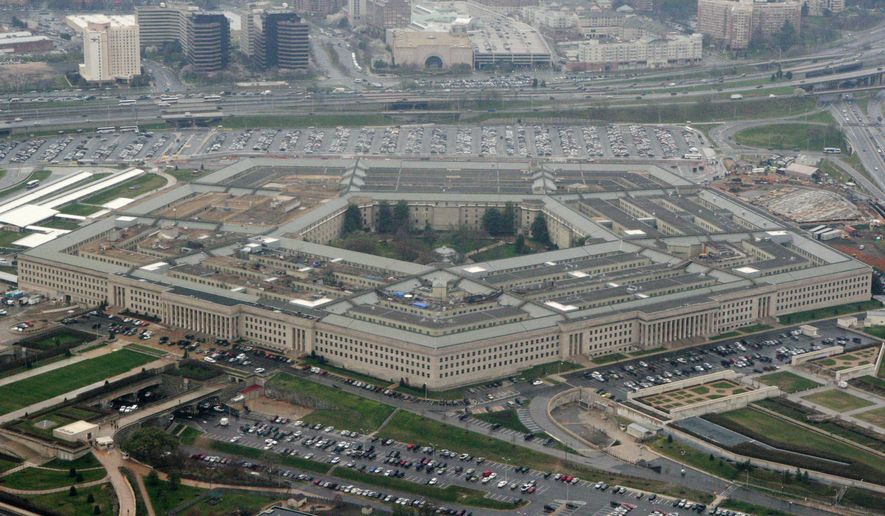It’s not just restaurant hosts and long-haul truckers who are getting wooed by potential employers these days.
Facing the same pandemic- and market-related staffing shortages as civilian employers, U.S. Army officials are now offering record amounts of sign-up money to potential recruits as an incentive. If you’re qualified and enlist for six years, the Army will offer its largest-ever bonus package: up to $50,000.
The package, announced Wednesday, is based on a combination of incentives such as individual qualifications, length of the contact, and the date the future soldier is willing to ship out for training, Army officials said. In the past, enlistment incentives for full-time soldiers couldn’t exceed $40,000, officials said.
Competing for a limited talent pool with the private sector, the Army must be able to generate the interest needed to fill vacancies in about 150 different career fields in both the active duty and reserves, officials with the Army’s Recruiting Command said.
“This is an opportunity to entice folks to consider the Army,” Brig. Gen. John Cushing, the recruiting command’s deputy commander for operations, said in a statement. “We’ve taken a look at the critical [positions] we need to fill in order to maintain the training bases, and that is where we place a lot of our emphasis.”
Career-based incentives range from $1,000 to $40,000 for select occupations the Army needs to fill immediately or has had difficulty filling in the past. Those positions can range from Special Forces soldier to radar repair specialist. Other incentives include signing up for airborne training — agree to jump from an airplane in flight and you could get up to $10,000 — or even $20,000 to qualify as an elite Army Ranger.
Leaving home early can get you some bonus money as well. For recruits prepared to report to boot camp in 90 days, the Army will offer incentives ranging from $2,000 to $9,000.
Since going to an all-volunteer military, the military services have always faced recruiting challenges in an inverse relationship to the civilian job market. When jobs are plentiful and the economy is booming, recruitment can be a challenge. In tough economic times, the military starts to look like a far more attractive career path, at least in the short term.
With the U.S. employment rate now below 4% and private employers offering their own bonuses and benefits packages to attract talent, military recruiters say the more attractive enlistment packages are essential. The latest combination of the incentives can push the potential recruit to the $50,000 bonus mark, Army officials said.
“We want to promote the value of serving your country, but at the same time, we’re not oblivious to the compensation piece,” said Maj. Gen. Kevin Vereen, who leads U.S. Army Recruiting Command.
Sgt. 1st Class Mary James, an Army recruiter in Ohio, told The Associated Press that her job was especially challenging when COVID-19 was surging and there were no vaccines. The crunch has eased somewhat, and she said the higher bonuses will help her. “Money isn’t always the first thing that they talk about, but it does come into play,” said Sgt. James, a 15-year veteran. “It will be exciting to see what the return is on that. You know, I think it does put us in one of the top tier levels of competitive businesses.”
Money is not the only enticement. The Army is looking at offering duty station choice and a two-year enlistment to recruit those who may not be so focused on a signing bonus, officials said.
“We know this generation likes to have the opportunity to make their own decisions,” Maj. Gen. Vereen said. “Many people are apprehensive about long-term commitments right now, so we think having a shorter option will help give them some time to see if the Army fits their life and goals.”
Army officials said a big pot of recruiting money will be offered in the next few months in a concentrated push, a practice that differs from previous years.
In the past, the bonuses were spread out “sort of evenly like peanut butter across the whole [recruiting] year,” Brig. Gen. Cushing, the deputy commander at Recruiting Command, told AP. This year, the money will be concentrated in the next few months when it is really needed.
“It is certainly a weapon that we have in our arsenal. And I think we’ve used it effectively and I’m very confident we’ll get after it again this year,” said Brig. Gen. Cushing.
— This article was based in part on wire service reports.
• Mike Glenn can be reached at mglenn@washingtontimes.com.




Please read our comment policy before commenting.